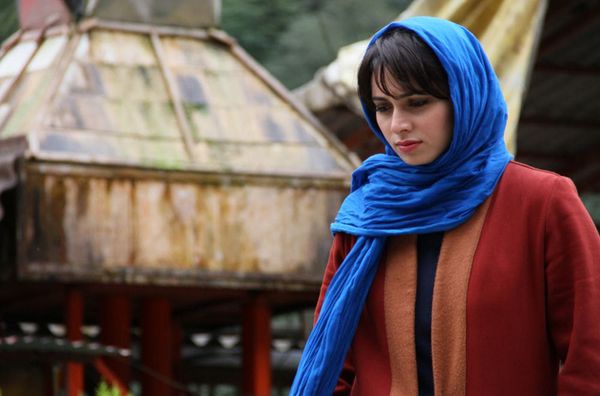Eye For Film >> Movies >> Kami's Party (2013) Film Review
Kami's Party
Reviewed by: Amber Wilkinson

Ali Ahmadzadeh's debut film, which had its premiere at the Black Nights Film Festival this week, treads a more straightforward narrative path than many Iranian movies and opens up a window on the world of wealthy young Iranians through a day in the life of a small group of them.
Like fellow Iranian filmmaker Asghar Farhadi, Ahmadzadeh and his co-writer Mina Sadati are keen to encourage audienes to leave their preconceptions of the country and its people in the foyer and to show the similarities between youngsters in Iran and elsewhere. Sisters Negin (Mina Sadati) and Nazanin (Nazanin Farahani), like many twentysomethings the world over, enjoy a good party, with all that entails - including trouble. And when we meet Nazanin, she has a big problem. After what seems like a particularly heavy night of drinking and drugs, her sister's boyfriend Omid sits slumped, dead at the breakfast table.

Presumably in a bid to dispose of the body, she drags him to her car and hefts him into the boot, only to find that she is boxed in. Leaving him, she falls back asleep, waking to discover that Negin has already headed out in her motor to the next party with her pal Farnaz (Pegah Ahangarani), little suspecting there's a very good reason why Omid isn't answering her calls.
The death - revealed in the first moments of the film - may sound like a macguffin and, in some ways, it does fulfil the role, acting as a motivator for Nazanin, who quickly hitches a lift with a pal who is fresh back from Amsterdam. But the body also represents a metaphor in that, as the subtitles point out, the word 'omid' means 'hope' in Persian. It's a heavy symbol and one which feels a little too overplayed, as the film's strength lies more in its depiction of the wealthy class.
As the two girls pick up a hitchhiker friend-of-a-friend that they barely know (Mehdi Koushki), the action flits between the two vehicles, with the characters talking about the inconsequentialities of life - from who is in and out on the social scene to the compatibility of star signs.
"Is this deja vu or are we repeating ourselves," asks one of them. It's a good question and one which goes to the heart of the film, for good and bad. The constant chatter does offer an insight into things that it would be difficult to shoot in an Iranian film without risking a lot of trouble with the authorities and shows how empty the lives of these characters seem to be, beyond a bit of gossip and where the next party is coming from. But it also becomes tiring for us, cooped up in the cars with them - when they seem to care so little about anything themselves, its hard for us to feel emotionally wedded to them.
The film, like their trip, is intermittently interesting but the journey becomes wearing.
Reviewed on: 24 Nov 2013














